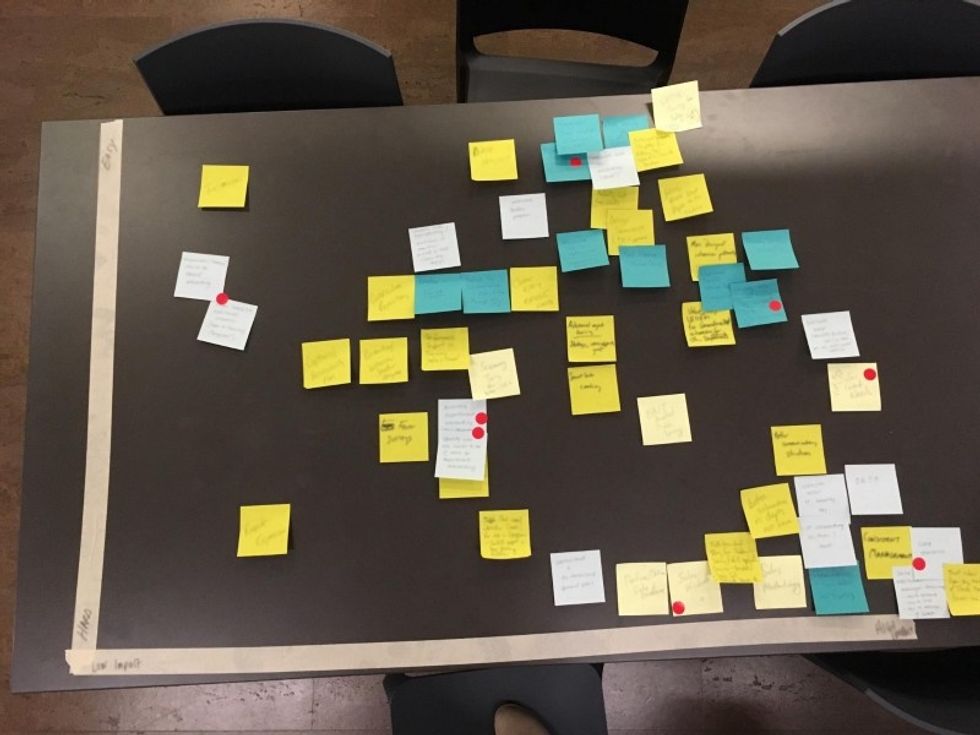Below is an article originally written by Kristen Swanson at PowerToFly Partner Slack, and published on November 11, 2016. Go to Slack's page on PowerToFly to see their open positions and learn more.
What was the most important thing you learned over the last six months? Picture it in your mind.
Go ahead, I'll wait.
Chances are… your mental picture looked nothing like this:
When asked, not many people cite traditional training as their most valuable learning experiences.
In lots of companies, on-the-job training is greeted with a deep, guttural groan. It's a mandatory evil, a long series of tasks that take peopleaway from their core work for little benefit. Given that our mission at Slack is to make people's working lives more productive, these traditional models don't cut it for us.
And so, we're thinking about professional learning differently.
Instead of asking: How do we get people to do…
We ask: How might we build a system where the most people possible can succeed?
To answer this critical question, our learning and development team takes a three step approach:
Step One: Pull, not push
At Slack, virtually every learning experience we offer is optional and open to all. This creates a democratic environment where learners are motivated by curiosity, relevancy, and a deep business need.
Instead of "pushing" lots of mandatory content, we allow people to "pull what they need" from an integration between Slack and Bridge, our learning management system. Each learning experience is brief, targeted, and modular. Given that a "search first culture" is one of the core assumptions underlying Slack (the product) — that is, proactively look to see if the answers you need exist before asking a question — it makes sense for our learning program to reflect that as well.
And, because we can't meet every demand, we offer a professional development stipend for every employee to pursue external programs as needed.
Step Two: Active learning
We offer a wide array of online and in-person learning experiences each month on topics ranging from public speaking to negotiating to handling unconscious biases in the workplace. Whenever possible, we want people to interact with what they're learning.
Repeated research has shown that adults learn best when they are thrust into problem-solving experiences, not piles of content.
At Slack, it's common to find groups of people exchanging feedback, role playing, or building prototypes. This makes it more likely that people will transfer their learning back to their day-to-day work experiences. And, of course, that's really important.
Step Three: Communities of learners
When planning what we'll tackle next, our learning team at Slack is often heard repeating the phrase "the more the merrier!" This is because we need a diverse set of stakeholders to help us determine which types of learning are most needed.
We're always looking for the intersection of learner curiosity and business needs. Because we spend a lot of time talking about our goals as a company, this happens quite naturally.
Every quarter we collaboratively choose which learning experiences will have the biggest impact on our team. Our team of collaborators spans across many departments, roles, and levels.
Once designed, many of our courses are facilitated by internal experts from deep within Slack. For example, our leadership academy is peppered with leaders from inside Slack. Who better than current leaders to understand what leadership means within our company?
Yea, but… Does it work?
Although it's early in our history, our strategies seem to be working. The aggregate net promoter score for our courses is 91, and aggregate comprehension scores are just above 80%. We're also seeing our attendees uplevel their work in their respective roles as reported by their managers. Of course, we have much more to learn, but these early results seem to show the investment we're making is a good one.
The more we learn together, the better we'll be able to tackle what's next.
Kristen Swanson is Slack's Director of Learning and thinks backpacks are better than purses.






